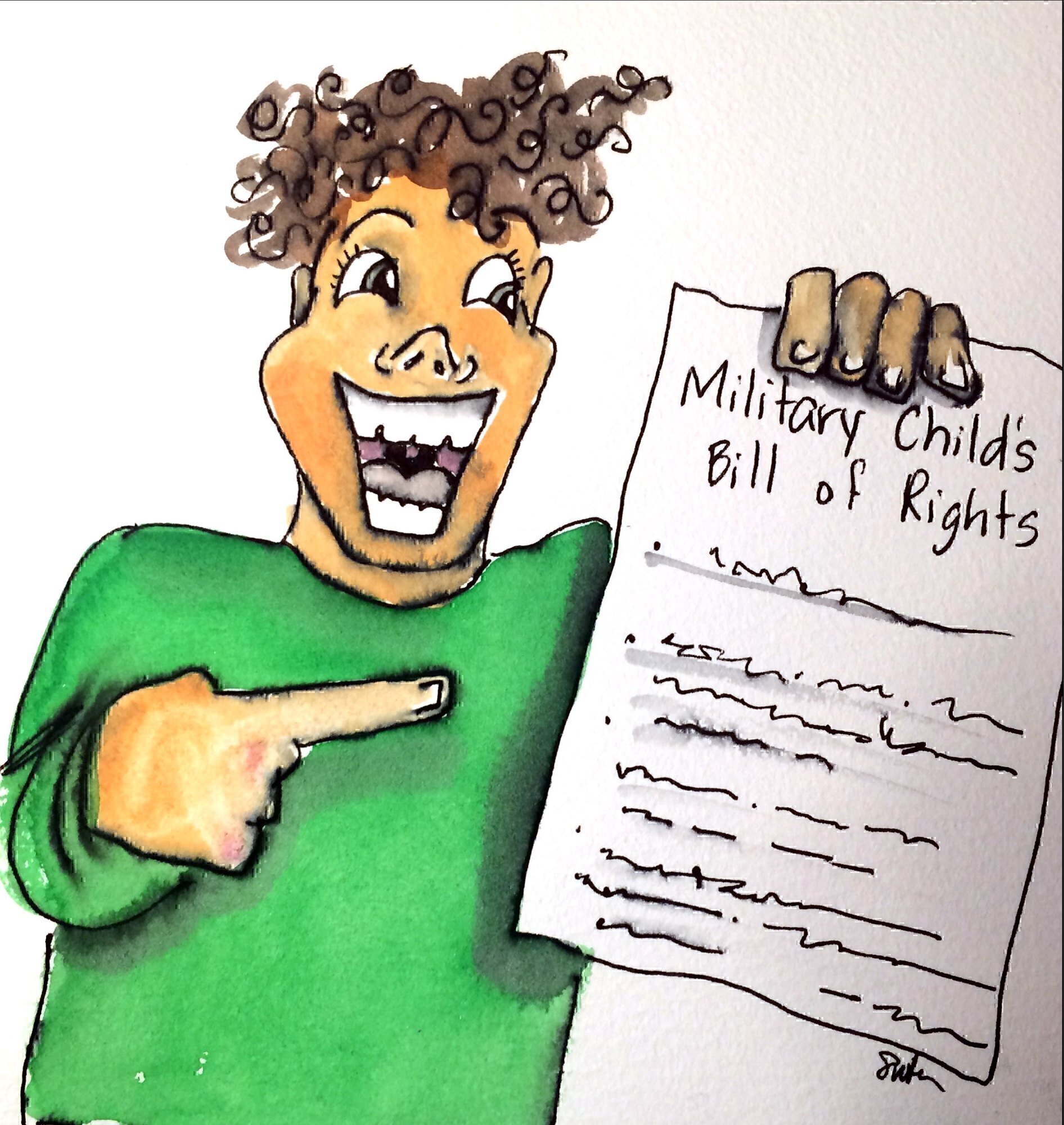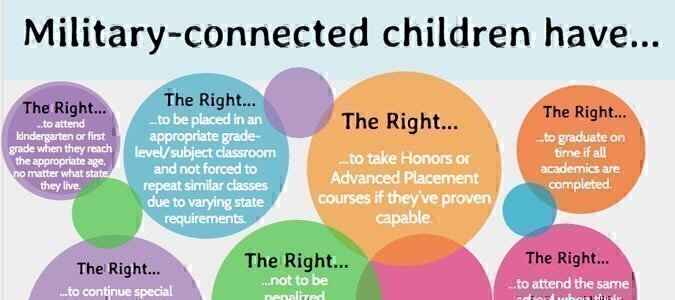Military-connected children have educational rights. They may not be called educational rights in any law or policy, but the intent behind the Military Children’s Interstate Compact Commission (MIC3) is the same – a fair treatment of military-connected kids in public schools.
Our military-connected children encounter a plethora of challenges and obstacles when transferring schools. The Compact provides for the uniform treatment of military children transferring between school districts and states.
Many official entities, including the Department of Defense, national associations, federal and state officials, Department of Education, school administrators and military families developed the Compact’s specific provisions.
With the recent signing by the State of New York, all 50 states have adopted the Compact. It’s not a suggestion; it’s the law. This means every school district in the country and overseas DoD schools now has uniform guidelines and support to help military-connected children thrive through school transitions and deployments.
Parents need to know the Compact like the back of their hands, particularly as the family PCSes or a parent deploys, because not every employee, teacher, administrator, or principal may be aware of the Compact’s details even though all 50 states have signed it.
See more on MIC3 here from Military Spouse Magazine.
Brigadier General Stephen Hogan, U.S. Army Reserve retired, Executive Director of MIC3 and a parent, understands the need for the Compact. He emphasizes the importance of parents knowing the details of the Compact. “Parents are the best advocates for our military-connected kids. It’s important for them to understand which issues are covered and which ones are not. They can play a bigger role in the transition from school to school.”
What is covered in the Compact? There are several basic educational issues that are covered in every state and every public school district. Each issue relates directly to changing schools due to a PCS or a service member’s deployment. The Compact covers many common issues relating to enrollment, eligibility and graduation for military-connected students.
The Compact is especially important to those parents who have middle school- or high school-aged students who are transferring credits or participating in extra-curricular activities. Many schools tend not to accept courses or hours from other states and school administrators often refuse transfer courses such as History, P.E. and electives due to varying state requirements. However, the Compact states that the receiving school has flexibility and waiving authority to accept and place military-connected students in appropriate courses – without penalizing them for changing schools. In some cases, parents will need to bring the details of the Compact to the school for resolution.

The Duhacheks are a military family with school-aged children. They found success by using the Compact after their recent PCS. “The Compact helped my daughters with receiving the school credits they rightfully earned. The Compact was a useful tool for coordinating between the military school liaison program and myself. It took only a few days to complete the process! It was a very smooth process and I felt like I had a team backing me up to take care of this situation. My daughters received the credits and now they can relax and continue to focus on their school work rather than worrying about repeating courses.” says Mrs. Duhachek.
Thankfully other resources exist if parents and school administrators are unable to work out their differences. Most every base or post has a School Liaison Officer, who should be well informed about the Compact. There are also state officials called MIC3 Commissioners who can help. These volunteers are appointed by the MIC3 to help military families find resolution. It is important to know what is and is not covered in the Compact; an MIC3 Commissioner can help you understand your child’s rights in school.
Select your state here to find your state commissioner.
Our military-connected children have rights, but ultimately parents are the strongest advocates for their children when it comes to transferring schools and dealing with deployments. Although MIC3 is a law in all 50 states, not all school staff and administrators are aware of the unique stressors military-connected students must endure. It’s crucial for parents to be empowered with knowledge and a strong voice.
PCS Checklist for changing schools.
Visit www.FamiliesOnTheHomeFront.com for tips, advice and advocacy in successfully transferring between schools.




